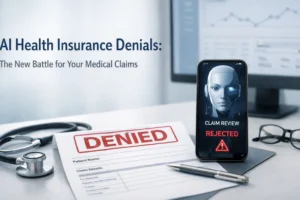In my previous column, I explained three red flags about your finances that you should be concerned with fixing immediately.
Those previous three issues might seem like obvious economic problems. But what about three factors that are not as obvious? They too could set you up to be a financial train wreck.
Here are another three red flags that indicate fiscal disaster is closer than you thought.
Red Flag #4: No Financial Plan
If you have no financial plan, in my opinion you’re a financial train wreck waiting to happen.
Without a financial plan – an overall philosophy or guiding set of principles, along with a specific agenda that guides your financial decision-making – you’re just going to be tossed in the wind when it comes to spending, purchasing decisions, investments, savings, and all kinds of things.
Worst case scenario: Having no financial plan leads to poor choices that you later regret tremendously, and have to spend years recovering from – emotionally and economically. And because you haven’t properly prepared for the future, areas like retirement planning insurance, and estate planning will be neglected, hurting both you and your loved ones.
It’s vitally important to have an overall financial plan, to avoid being thrown off the course of life when challenging circumstances occur, both expected and unexpected.
To better prepare for the future, read this article on How to Create a Solid Financial Back-Up Plan.
Red Flag #5: No Mid-Term and Long-Range Goals
If you haven’t set mid-term and long‑range goals, that tells me that you could also be a financial train wreck waiting to happen. You may fall into the “dreamer” category of folks who say: “It will all work out somehow” or “I’ll worry about that later.”
Procrastination is the enemy or good financial health. So, don’t wait until you’re 50 years old to start thinking about retiring at age 55. That’s going to make you a financial train wreck! Instead of focusing exclusively on the here and now, start thinking also about what you want your life and your financial picture to look like five years from now or even 10 or 20 years and beyond.
Doing the things that it takes today to have financial security in the middle and latter parts of your lives will give you the peace of mind and the economic wherewithal to withstand any financial blows you might encounter in the future.
Otherwise, if you don’t have those mid‑range or long‑term goals set in place and start taking working on achieving them now, trust me, your chances of achieving those goals are between slim and none.
Worst case scenario: You go through life hitting every major milestone – like your 40th birthday, then your 50th and so on – and you always think: ‘What do I have to show for myself?’ Then you hit retirement age, and because you never established and worked on a retirement goal, you’re broke and barely scraping by on Social Security (if it’s still around).
A better strategy: write down your future goals now and find a trusted financial advisor who can work with you to reach those goals.
Here are some tips on how to find the right financial advisor.
Red Flag #6: No Plan B
Unfortunately, it’s not good enough to simply map out a financial plan for your life. That’s because too many unexpected things happen that can throw you for a loop. That’s why you also need a Plan B, or a back-up plan in case circumstances don’t turn out the way you anticipate.
If you have no plan B in life, oh my goodness, are you in for a rude awakening! You might not fully understand it now, you might not realize it, and you might not agree with me, but you are surely a financial train wreck waiting to happen.
What kind of a Plan B should you have? You should be thinking about any potential disasters scenarios. I don’t want to sound like the voice of doom and gloom, but I want you to recognize that “life” happens to all of us. And in particular the Dreaded D’s happen. That stands for Downsizing, Divorce, a Death in the family of the main breadwinner, Disability, or Disease.
Worst case scenario: If any one of these five dreaded D’s happens to you, it can definitely lead you quickly down the road to financial ruin.
Need an Economic Plan B? Ask Yourself These Crucial “What if” Questions
So, if you take steps now to try to alleviate these six conditions – having too much debt; a poor credit rating; no savings; not having a financial plan; not setting mid‑range or long‑term financial goals; and not having a financial plan B – then you’ll reverse course and start to fix your finances.
You’ll prepare for a life of personal and financial prosperity, and you’ll avoid being a financial train wreck that’s waiting to happen.










